<< Previous | Displaying results 571-580 of 6809 for "" | Next >>
Ida was born to Jewish parents who owned a dry goods store in a small town in the Rhine River valley. As a teenager, Ida loved to bicycle with her cousin, Luise, in the scenic valley. After graduating from school, Ida helped her parents run the store. When she was in her early twenties, she married Fritz Lang, who owned a dry goods store in nearby Lambsheim, where they lived. 1933-39: Ida and Fritz have hired a housekeeper to help take care of their new baby girl, Freya, while Ida works in the store. More…
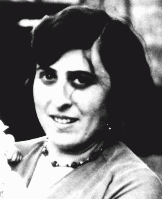
Kalman was one of seven children born to religious Jewish parents in the town of Tarnow. He attended public school in the morning and religious school in the afternoon. Kalman's father owned a factory that manufactured kosher soap, sabbath candles and candles for church altars. The Goldbergs lived above their factory, which was located in a predominantly Jewish neighborhood. 1933-39: The Germans occupied Tarnow on September 8, 1939. The next day, they burned the synagogues. One synagogue, built of stone…
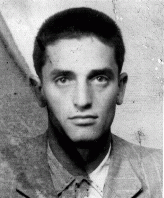
Rozia was the second-oldest of nine children born to religious Jewish parents in Starachowice, a town in east-central Poland. Their small one-story house served as both the family's residence and their tailor shop. The tailoring was often done in exchange for goods such as firewood or a sack of potatoes. Rozia worked in the shop sewing women's clothing. 1933-39: Rozia married a Jewish tailor from Radom, a large town some 60 miles south of Warsaw. The couple settled in Starachowice, and they ran a tailor…
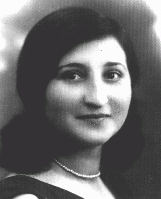
Ita was the second-youngest of nine children born to religious Jewish parents in Starachowice, a town in east-central Poland. Their small one-story house served as both the family's residence and their tailor shop. The tailoring was often done in exchange for goods such as firewood or a sack of potatoes. Ita often helped her mother with chores around the house. 1933-39: Ita's father died at home on a Saturday in June 1939, shortly after returning from synagogue. He had lain down to rest, when suddenly…
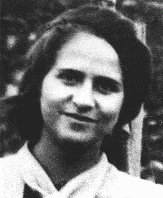
Chuna was born in a small one-story house that served as both his family's residence and their tailor shop. He was the youngest of nine children born to religious Jewish parents. The family's tailor shop mostly served Starachowice's Catholic Poles. The work was often done in exchange for goods such as firewood or a sack of potatoes. 1933-39: Chuna's father died unexpectedly in June 1939. After returning from synagogue one day, his father lay down to rest. He asked Chuna to close the shade to darken the…
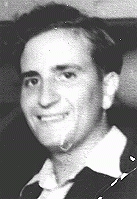
The eldest of six children born to Catholic parents, Franz was raised in a village in the part of Austria known as Carinthia. His father was a farmer and quarryman. Disillusioned with Catholicism, his parents became Jehovah's Witnesses during Franz's childhood and raised their children in their new faith. As a teenager, Franz was interested in painting and skiing. 1933-39: Franz was apprenticed to be a house painter and decorator. After Nazi Germany annexed Austria in 1938, like other Jehovah's…
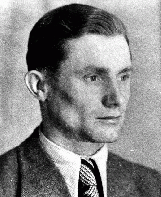
Emma was born to Catholic parents in Strasbourg, the capital of Alsace-Lorraine. Her father died when she was 8 years old, and Emma grew up on her mother's mountain farm. At 14 she became a weaver. Later, she married and moved with her husband to the Alsatian town of Husseren-Wesserling. In 1930 she gave birth to a daughter. In 1933 the Arnolds moved to the nearby city of Mulhouse. 1933-39: Emma and her family decided to become Jehovah's Witnesses. Emma felt she was blessed with a loving husband and…
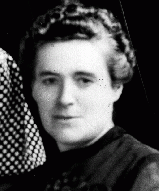
Ruth lived in Uzliekniai, a village in the Memelland, a region in southwestern Lithuania ruled by Germany until 1919. An avid reader, Ruth was distressed by news of postwar political turmoil. In 1923, when Uzliekniai became part of Lithuania, she joined the Jehovah's Witnesses. She married Eduard Warter, another Jehovah's Witness, in 1928. They had four children over the next five years. 1933-39: Ruth was busy raising her children and making sure they did their Bible studies. On March 22, 1939, the German…
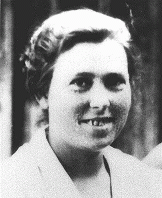
Johanna was born in Vienna when it was still the capital of the Austro-Hungarian Empire. Her Christian family experienced the disruption resulting from the empire's collapse, as well as the instability of the Austrian republic. The depression of 1929 hit Vienna especially hard. In 1931 Johanna became a Jehovah's Witness. 1933-39: Johanna traveled constantly in and out of Austria distributing our Jehovah's Witness literature. In March 1938 Germany annexed Austria and her family was subjected to Nazi law;…
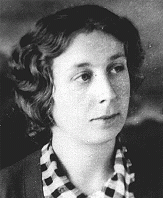
Berthold was an only child. He was raised in Paderborn, a town in a largely Catholic region of western Germany. Paderborn was near Bad Lippspringe, where there was a Jehovah's Witnesses congregation engaged in missionary work. Beginning in 1933, the Nazis moved to outlaw Jehovah's Witness activities. 1933-39: When Berthold was 4, his parents became Jehovah's Witnesses and he began to attend secret Bible meetings with them. Berthold began public school in 1936. His mother was arrested in 1939 and sent to…
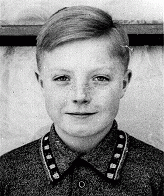
We would like to thank Crown Family Philanthropies, Abe and Ida Cooper Foundation, the Claims Conference, EVZ, and BMF for supporting the ongoing work to create content and resources for the Holocaust Encyclopedia. View the list of donor acknowledgement.